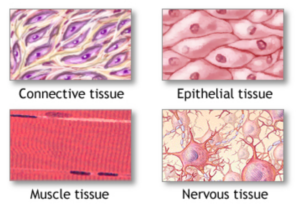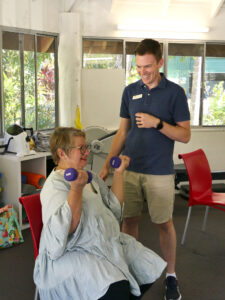 There are four main classes of tissue in your body; muscle tissue, nervous tissue, epithelial tissue (your skin and lining to intestinal tract and lungs) and connective tissue. Your bones are part of the connective tissues, which include your blood, bones and areolar tissues (a variety of tissues connecting your skin, bones and organs).
There are four main classes of tissue in your body; muscle tissue, nervous tissue, epithelial tissue (your skin and lining to intestinal tract and lungs) and connective tissue. Your bones are part of the connective tissues, which include your blood, bones and areolar tissues (a variety of tissues connecting your skin, bones and organs).
Bones are vitally important as they provide the hard structure that everything else connects to provide support, protect your organs and allow us to move around. Bones also provide the structure for specialised cells to create our blood cells and store vital minerals for good functioning. The density of your bones is a good indicator to ensuring you live a healthy and active life.

Cancer and its related treatments including chemotherapy, radiation therapy, and hormone therapy can lead to a reduction in bone mineral density. This can put a person at an increased risk for developing osteoporosis and bone fractures.
Exercise is one of the most effective tools in slowing down the rate of bone loss and can also lead to improvements in bone density. The most effective forms of exercise in strengthening bones are weight bearing and resistance training exercises. Weight bearing exercise is any form of exercise where you’re on your feet and the body is working against gravity which includes: walking, hiking, climbing stairs, jogging, skipping, and playing recreational sports. Resistance training is a form of muscle strengthening exercise that can be done using your own body weight (squats, push-ups, lunges etc.), lifting weights, or using resistance bands. Resistance training is both important for maintaining bone density and improving the strength of the major muscle groups that help support and stabilise our bones and joints. A balanced program inclusive of weight bearing exercise and resistance training is most effective in helping to promote improved bone density.
As with any form of exercise it is important to start at a level that is appropriate and safe for you. An exercise physiologist is a trained professional that can tailor an exercise program that is suitable to your individual needs and health conditions. If loss of bone density is a concern for you our Bloomhill Accredited Exercise Physiologist Ryan Day can help devise an individualised exercise program to improve your bone health.
Please contact our Nurses on 07 5445 5794 or [email protected] if you have any questions.
All information provided by Bloomhill is based on research and best practice guidelines. Our model of care utilizes the Clinical Oncology Society of Australia (COSA) domains of wellness along with available clinical evidence. Always consult your care team regarding matters that affect your health. This is a guide intended for information only.




